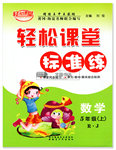题目内容
Dear Betty,
I hope you’re well. I’m on holiday in London with my friend Jenny. We arrived by plane on Monday and took a taxi to our hotel. I went for a walk in Hyde Park but Jenny didn’t come with me because she was tired.
Then on Tuesday we saw the clock, Big Ben, and Buckingham Palace. Queen Elizabeth lives in the Palace, but we didn’t see her! I bought some presents but Jenny didn’t buy anything!
The next day we visited the British Museum and had dinner in a Chinese restaurant!
On Thursday morning we relaxed. Then we went to Tower Bridge on the River Thames and looked at the city. It’s very big!
Finally today I did some shopping and Jenny listened to a concert in the park. I came back to the hotel and read the newspaper. Then I wrote some postcards and sent some emails. I took lots of photos and I’m sending them with this email to you!
Tomorrow we’re going to fly home. It was a short holiday, but it was great! Say hello to your mum and dad.
Love,
Gran
根据短文内容, 回答下列问题。(10分)
小题1:How did Gran and Jenny go to London for a holiday?
小题2:Why didn’t Jenny go for a walk in Hyde Park?
小题3:Did Jenny buy anything on Tuesday?
小题4:When will Gran and Jenny go back home?
小题5:How did Gran feel when she traveled in London?
I hope you’re well. I’m on holiday in London with my friend Jenny. We arrived by plane on Monday and took a taxi to our hotel. I went for a walk in Hyde Park but Jenny didn’t come with me because she was tired.
Then on Tuesday we saw the clock, Big Ben, and Buckingham Palace. Queen Elizabeth lives in the Palace, but we didn’t see her! I bought some presents but Jenny didn’t buy anything!
The next day we visited the British Museum and had dinner in a Chinese restaurant!
On Thursday morning we relaxed. Then we went to Tower Bridge on the River Thames and looked at the city. It’s very big!
Finally today I did some shopping and Jenny listened to a concert in the park. I came back to the hotel and read the newspaper. Then I wrote some postcards and sent some emails. I took lots of photos and I’m sending them with this email to you!
Tomorrow we’re going to fly home. It was a short holiday, but it was great! Say hello to your mum and dad.
Love,
Gran
根据短文内容, 回答下列问题。(10分)
小题1:How did Gran and Jenny go to London for a holiday?
小题2:Why didn’t Jenny go for a walk in Hyde Park?
小题3:Did Jenny buy anything on Tuesday?
小题4:When will Gran and Jenny go back home?
小题5:How did Gran feel when she traveled in London?
小题1: By plane.
小题2:Because she was tired.
小题3:No, she didn’t.
小题4:Tomorrow./On Saturday.
小题5:She felt great/happy/short but great./Happy/excited/ Great./Short but great.
试题分析:这封信中格兰向贝蒂介绍了自己在伦敦旅行的一些情况,具体介绍了自己每天的一些活动,文中时间词出现较多,应多加注意。
小题1:根据We arrived by plane 可知填:By plane.
小题2:根据Jenny didn’t come with me because she was tired.可知答:Because she was tired.
小题3:根据Then on Tuesday ……but Jenny didn’t buy anything!可知答:No, she didn’t.
小题4:根据Tomorrow we’re going to fly home.可知答:Tomorrow./On Saturday.
小题5:根据It was a short holiday, but it was great!可知答:She felt great/happy/short but great./Happy/excited/ Great./Short but great.
点评:本文浅显易懂,层次分明,学生很容易把握文中中心内容。答题中注意带着问题阅读短文,一般就能顺利找出答题依据。书写答案时,注意首字母大写,因为是回答问句,即使只有一个单词也是一个句子。为避免不必要的错误,只要能使用原文的就尽量使用原文回答问题,即使自己总结也尽量使用短句。同时并注意人称和数的变化。

练习册系列答案
 期末金牌卷系列答案
期末金牌卷系列答案 轻松课堂标准练系列答案
轻松课堂标准练系列答案
相关题目
